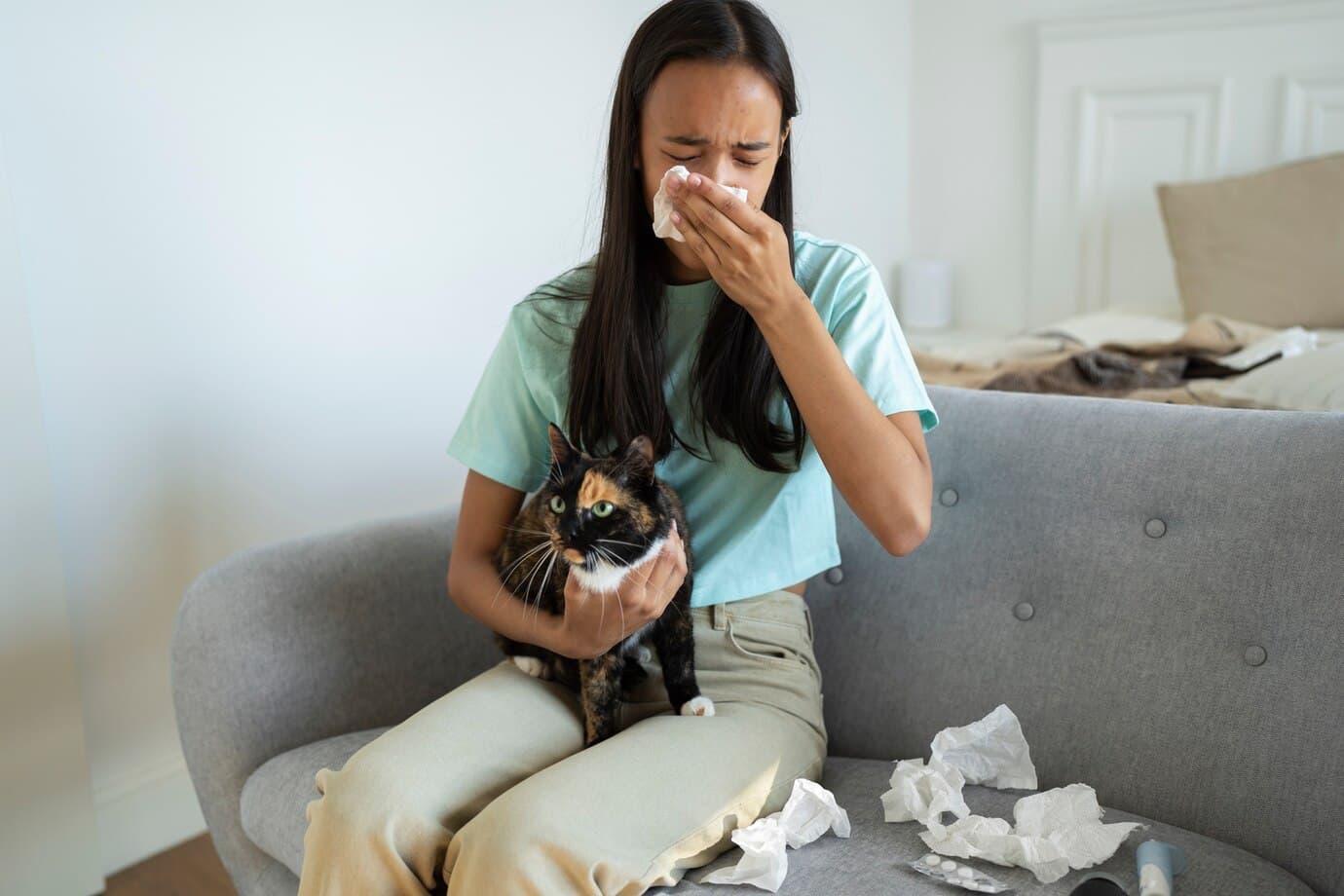Allergies in Cats: Symptoms, Causes, and How to Help Your Feline
Allergies in cats can be a challenging issue for pet owners. Understanding the symptoms, causes, and effective treatments can help you provide the best care for your feline friend. At Mavyn, we combine AI-driven insights with expert human advice to guide you through managing your cat's allergies.
Symptoms of Allergies in Cats
Cats can display various symptoms that may indicate allergies. These include:
- Skin Irritation: Redness, bumps, or scabs on the skin.
- Excessive Grooming: Cats may groom excessively to relieve itching, leading to hair loss.
- Sneezing, Coughing, and Wheezing: Respiratory symptoms can sometimes be a sign of allergies.
- Runny Eyes and Nose: Persistent discharge from eyes or nose can be a symptom.
- Ear Infections: Frequent ear infections may be related to allergies.
Common Causes of Allergies in Cats
Identifying the cause of your cat’s allergies can be tricky. Common allergens include:
- Fleas: Flea allergy dermatitis is a common allergic reaction in cats.
- Food: Some cats are allergic to certain proteins in their food.
- Environmental Allergens: Pollen, mold, and dust mites can trigger allergies.
- Household Chemicals: Some cleaning products, perfumes, and even some cat litters can cause reactions.
How to Help Your Feline
1. Visit a Veterinarian
A vet can conduct allergy tests and provide professional advice. Mavyn’s human experts can help you prepare for the vet visit or interpret medical advice.
2. Allergy Treatments
Depending on the cause, treatments may include:
- Flea Control: Regular use of flea control products recommended by your vet.
- Dietary Changes: Switching to hypoallergenic cat food as per veterinary guidance.
- Medications: Antihistamines, corticosteroids, or other medications prescribed by a vet.
- Allergen Avoidance: Keeping the home clean and free of known allergens.
3. Regular Cleaning
Regularly clean bedding, carpets, and furniture to reduce the presence of allergens.
4. Air Purifiers
Using an air purifier can help reduce airborne allergens in your home.
5. Consult Mavyn
For immediate advice, chat with Mavyn GPT or connect with a human expert to discuss your cat’s specific symptoms and get tailored advice.
Conclusion
Managing allergies in cats requires patience and careful attention to their environment and health. By recognizing the symptoms early and consulting with professionals, you can ensure your cat leads a comfortable and happy life. Remember, every cat is unique, and what works for one may not work for another. Tailored advice from Mavyn can guide you through the specifics of your cat’s condition.
For more information or personalized advice, don’t hesitate to reach out to Mavyn. Whether through our AI service, Mavyn GPT, or our human experts, we’re here to assist you every step of the way.
